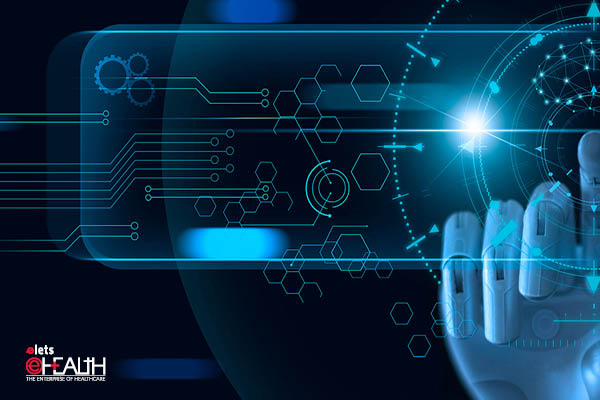
The United Arab Emirates (UAE) is at the forefront of a healthcare revolution. The UAE’s Ministry of Health and Prevention is driving the change with a suite of digital services that enhance the patient experience. Furthermore, healthcare landscape in the UAE has undergone a significant transformation over the past decade, shifting from a reactive “sick care” approach to a more proactive and technology-driven “lifelong healthcare” model. This evolution has been driven by advancements in medical technology, AI predictive modeling, genomic sequencing, smart wearables, and telemedicine.
The growth trajectory is evident and supported by the rapid adoption of digital health applications and technological solutions. The healthcare market in the UAE is on track to be valued at more than $2 billion by 2025. Also, the UAE Digital Health market is projected to grow from $1.06Bn in 2022 to $4.42Bn by 2030, registering a CAGR of 19.6 per cent, reported Insights10.

Over 80 per cent of healthcare facilities in the region now use some form of electronic records with Universal Electronic Medical Recorder that keeps a full medical history of patient for any authorised practitioner within the country. Telemedicine initiatives are shrinking the distances between doctor and patient, enabling care from home. Additionally, In a historic moment, Dubai achieved a significant healthcare milestone by successfully conducting medication deliveries via drones in collaboration with Fakeeh University Hospital at Dubai Silicon Oasis.
Embracing the Future with UAE’s Groundbreaking Progress in Healthcare
The healthcare sector features substantial government investment in healthcare infrastructure, to establish the UAE as a leading medical center in the Middle East.

Furthermore, healthcare trends in the UAE reflect the challenges and the commitment to improvement. The Emirates Health Services (EHS) Innovation Strategy for 2023-2026 is geared towards building a sustainable healthcare future. This strategy aligns with the National Strategy for Wellbeing 2031 and “We the UAE 2031” vision, in harmony with the UAE Centennial 2071 goals.
Technology is playing a revolutionary role in achieving the UAE’s 2031 vision, and several technologies are making a significant impact on the country’s healthcare infrastructure:
- Artificial Intelligence (AI): AI is transforming healthcare services with its wide range of applications, including chatbots, predictive data analysis, and AI-assisted robotic surgery. The Department of Health (DOH) has introduced an AI Policy to regulate AI implementation in healthcare services, ensuring compliance with UAE and DOH regulations, including data protection. According to a report by PwC, AI adoption in the healthcare industry could lead to annual savings of up to $22 billion for the UAE healthcare system by 2030.
- Telemedicine: Telemedicine is a revolutionary technology in the UAE that enables remote diagnosis and treatment, eliminating the need for in-person consultations. The Dubai Health Authority (DHA) reported that healthcare institutions in Dubai provided over 300,000 telemedicine consultations in 2022, marking a 24 per cent increase from the previous year. Dubai has effectively integrated technology into its healthcare system, with 129 hospitals offering telemedicine services.
- Digital Pharmacology: Digital therapeutics, involving the use of digital tools to deliver therapeutic care, represents a potential future of digital health. Digital medicines can treat a wide range of conditions, from chronic pain to mental illnesses. These treatments, such as cognitive behavioral therapy and mindfulness meditation, are designed to teach patients how to manage their symptoms through relaxation techniques and breathing exercises. The software also sends regular reminders to patients regarding their therapy sessions.
- Precision Medicine and Genomic Strategy: Sarah Al Amiri, Minister of State for Public Education and Advanced Technology, emphasized the UAE’s commitment to precision medicine, which is crucial in managing the world’s growing population health needs. This includes the National Genome Strategy, launched in March 2023, aimed at developing genome-based programs and pioneering precision medicine applications.
Rolling Robust Research Infrastructure in UAE
In today’s healthcare research landscape, diversity plays a pivotal role because individuals can respond differently to treatments and interventions. Research helps to dispel the inaccurate assumption of uniformity in these responses. Therefore, strengthening research infrastructure is of paramount importance for advancing healthcare.
In contrast to some other nations the Middle East and North Africa (MENA) region boasts a substantial healthcare research infrastructure. A notable player in this domain is the UAE-based contract research organisation known as IROS (Insights Research Organization and Solutions). IROS brings a wealth of curated expertise, advanced technology, and a robust research infrastructure not only to the MENA region but also onto the global stage. This underscores the significance of diversity in scientific and medical research.
IROS not only facilitates cutting edge research and clinical trials but also places a special focus on the underrepresented MENA region. These trials encompass a diverse ethnic composition, leading to a substantial improvement in our understanding of therapeutics for local communities. This, in turn, empowers pharmaceutical companies to develop new medications and drugs with a more intelligent approach and to access new markets more efficiently.
The Digital Pulse of Healthcare in the UAE
The ongoing digital transformation within the healthcare sector holds great promise for enhancing patient care, streamlining operational efficiency, and fostering innovation. UAE is diligently working on bolstering its healthcare infrastructure. A recent initiative by the healthcare sector regulator in the Emirate involves launching the Clinical Genomic Medicine and Genetic Counselling Programme, which targets the training of 100 Emirati physicians from various healthcare facilities across the UAE. This program, offered by the Department of Health (DoH) in partnership with the International Center for Genetic Disease (iCGD), Brigham and Women’s Hospital, Harvard Medical School, and Khalifa University of Science and Technology, marks a significant effort to provide a comprehensive education in genomics. It underscores the DoH’s commitment to enhancing the capabilities of physicians in the field of genomic medicine, equipping them with the necessary knowledge and skills. Here are some of the main highlights and advancements that have taken place in the UAE’s digital health landscape:
- AI Hosn App: The Al Hosn app was conceived as a comprehensive digital platform for health and vaccination records, with its inception coinciding with the need for an agile and responsive health management system amidst the global health challenges of recent years. Since its launch, the app has revolutionised the UAE’s healthcare ecosystem by digitising health data, facilitating real-time tracking of vaccination coverage, and serving as a critical tool in the management and prevention of infectious diseases.
- Enhancing Patient Care: Abu Dhabi health information exchange platform Malaffi has successfully integrated with the federal platform Riayati, developed by the Ministry of Health and Prevention (MoHAP). This development enables healthcare providers using Malaffi to access comprehensive patient records from across the Northern Emirates, thereby facilitating a more coordinated and efficient patient care approach.
- Clinical Genomic Medicine: A recent initiative by the healthcare sector regulator in the Emirate involves launching the Clinical Genomic Medicine and Genetic Counselling Programme, which targets the training of 100 Emirati physicians from various healthcare facilities across the UAE. This program, offered by the Department of Health (DoH) in partnership with the International Center for Genetic Disease (iCGD), Brigham and Women’s Hospital, Harvard Medical School, and Khalifa University of Science and Technology, marks a significant effort to provide a comprehensive education in genomics. It underscores the DoH’s commitment to enhancing the capabilities of physicians in the field of genomic medicine, equipping them with the necessary knowledge and skills.
UAE’s 2030 Digital Health Odyssey: A New Epoch of Digital Well-being
By 2030, the UAE’s digital health infrastructure is set to be a beacon of global excellence. Digital health is making quality care possible irrespective of geographical distances. Today, from AI-driven diagnostic system that identifies ailments in milliseconds to dispatching drones to deliver the necessary medications to even the most remote of locations – The healthcare ecosystem in UAE has come a long way.
With rapid advancements, citizens are going to enjoy multiple benefits. The union of AI and healthcare will mean fewer misdiagnoses, less time spent in waiting rooms, and more proactive health management tools at everyone’s fingertips. The technology will democratise access and flexibility to treatments.
As we stand at the cusp of this awe-inspiring 2030 horizon, the UAE is not just setting standards, it’s challenging the very imagination of what healthcare can be. It’s an odyssey that will be etched into the annals of history – a journey of a nation’s quest for the pinnacle of health innovation.
By 2030, the UAE is poised to present a showcase of health and technology in symphony, a narrative of human-centric innovation, a testament to what societies can achieve when they dare to dream. The UAE’s digital health mission is no longer just a vision, it’s a reality unfolding, one digital heartbeat at a time.
Internalisation & Collaborations – A Move to Fortify the Healthcare Ecosystem!
Recognising the importance of global collaboration and internationalisation, India and the United Arab Emirates have taken a notable step to strengthen their partnership in sustainable industrial development and advanced technologies. This collaboration is formalised through a memorandum of understanding (MoU) signed in Abu Dhabi, with a focus on joint efforts in areas such as supply chain resilience, healthcare, clean energy technology, and Industry 4.0. In the realm of healthcare and life sciences, the collaboration encompasses the development of pharmaceuticals, the utilization of biotechnology, and research and development activities. Bilateral agreements between India and the UAE extend beyond healthcare, and recent developments include RAK Hospital in Dubai entering into a clinical collaboration agreement with India’s Apollo Hospitals Group. This partnership will enable UAE patients to access medical advice from Apollo specialists, potentially obviating the need for international travel. The collaboration encompasses various aspects, including training, telemedicine services, academic cooperation, and laboratory referral services, all aimed at collectively advancing the field of health through the integration of cutting-edge medical technology.
In light of the increasing disease burden and the changing nature of non-communicable diseases, there is a growing imperative for healthcare providers to establish collaborative relationships across geographical boundaries. Such partnerships are becoming increasingly prevalent to address the evolving healthcare landscape effectively.
One notable development is the decision by India’s largest hospital, Medanta, to establish a 250-bed facility in Dubai Healthcare City (DHCC), aimed at delivering improved care to patients requiring specialized treatment. This endeavor is a joint effort between DHCC and the Indian healthcare provider, Medanta.
Furthermore, the UAE has entered into a strategic partnership with Indonesia to establish a specialised cardiac hospital in Surakarta, Central Java. This collaboration facilitated through an agreement between the UAE’s Ministry of Foreign Affairs and Indonesia’s Ministry of Health, will lead to the creation of the UAE-Indonesia Hospital for Cardiac Diseases at Solo Techno Park.
These examples are just a glimpse of the continuous actions being taken to improve and enhance the healthcare system in the UAE. The swift and successful execution of such collaborations is contributing significantly to the positive transformation of the healthcare landscape in the country.
Be a part of Elets Collaborative Initiatives. Join Us for Upcoming Events and explore business opportunities. Like us on Facebook , connect with us on LinkedIn and follow us on Twitter , Instagram.












